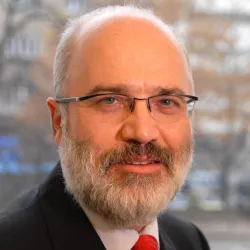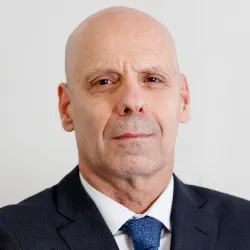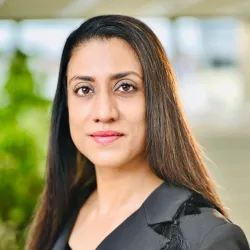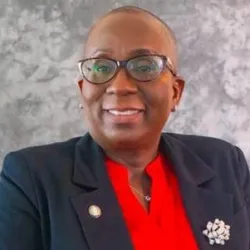Central bank board: good governance, resilience and strengthening independence
About: Central bank board: good governance, resilience and strengthening independence
Central bank board: good governance, resilience and strengthening independence
Date: September 18–20, 2023
Time: 9am-12pm (EDT) | 2pm-5pm (BST) | 3pm - 6pm (CET) I 9pm-12am (SGT)
Location: Virtual
Chair and speakers

Audun Grønn
Former IMF Executive Director and Central Banker (Norges Bank)
Born 1953, Mr. Grønn holds a graduate degree in economics (cand.oecon. 1979) from the University of Oslo. Work experience since 1980 includes vfarious positions at Norges Bank, including Director of International Department, Director of Statistics Department, and Special Advisor to the Governor. Mr. Grønn spent altogether eight years at IMF’s Executive Board in Washington DC, as Senior Advisor (1989-1992), Alternate Executive Director (2011-2013) and Executive Director (2013-2016), as well as one year at the ECB in Frankfurt as national central bank expert, monetary policy (2005-2006). He retired from his position at Norges Bank in July 2021, and continued as a consultant at the Bank on a part-time basis until December 2023.

Marko Škreb
Former governor
Croatian National Bank
Marko Škreb is a former governor of the Croatian National Bank. Currently he is Central banking lead on a Financial sector reform project (FINRA) in Bosnia and Herzegovina, financed by USAID. Before that he was resident project manager for Canada-IMF Capacity building project at the National Bank of Ukraine. He moved to Kyiv from his position as advisor at the International Monetary Fund’s Regional Technical Assistance centre in Accra, Ghana. Before that, he was chief economist and strategist at the second largest commercial bank in Croatia. Mr. Skreb started his professional career teaching at the University of Zagreb. Following academic vocation he joined the Croatian central bank, first as research and statistics director and later on as governor (from 1996 to 2000). In 1997 he was awarded the Central European Annual Awards for Excellence - Best Central Bank Governor by the Banker. Since 2000 he worked as a consultant for the International Monetary Fund and the World Bank in numerous countries, mostly in South-East Europe. He also worked at the Independent Evaluation Office of the IMF in Washington DC in the period 2004-2005. Mr Škreb published a number of articles and edited books, focusing on transition questions and financial issues.

Douglas Arner
Kerry Holdings professor in law
University of Hong Kong
Douglas W. Arner is the Kerry Holdings Professor in Law, RGC Senior Fellow in Digital Finance and Sustainable Development and Associate Director of the HKU-Standard Chartered Foundation FinTech Academy at the University of Hong Kong. In addition, he is Associate Dean (Taught Postgraduate and Development) of the Faculty of Law at HKU and co-founder and former Director of HKU’s Asian Institute of International Financial Law, as well as Faculty Director and co-founder of the LLM in Compliance and Regulation, the LLM in Corporate and Financial Law, the Law, Innovation, Technology and Entrepreneurship (LITE), and the East Asian International Economic Law and Policy Programmes. Douglas served as Head of the HKU Department of Law from 2011-2014, as Director of the Duke University-HKU Asia America Institute in Transnational Law from 2005-2016, and as an inaugural member of the Hong Kong Financial Services Development Council from 2013-2019. He is a Visiting Professor and Senior Visiting Fellow of Melbourne Law School of the University of Melbourne, a Visiting Professorial Fellow of the Faculty of Law of UNSW Sydney, a non-executive director of NASDAQ and Euronext listed biotechnology firm Aptorum Group, an Advisory Board Member of the Global Impact FinTech (GIFT) Forum, Policy 4.0 and of the Centre for Finance, Technology and Entrepreneurship (CFTE), and co-founder and an executive board member of the Asia Pacific Structured Finance Association. In 2020 he was awarded an inaugural Hong Kong Research Grants Council Senior Fellowship to study the role of digital finance in financial inclusion and the UN Sustainable Development Goals. Douglas has published eighteen books and more than 200 articles, chapters and reports on international financial law and regulation, including most recently Reconceptualising Global Finance and its Regulation (Cambridge 2016) (with Ross Buckley and Emilios Avgouleas) and The RegTech Book (Wiley 2019 (Janos Barberis and Ross Buckley). His recent papers are available on SSRN at https://papers.ssrn.com/sol3/cf_dev/AbsByAuth.cfm?per_id=524849 , where he is among the top 50 authors in the world by total downloads, as well as among the top 15 law authors. Douglas led the development of Introduction to FinTech – launched with edX in May 2018 and now with over 100,000 learners spanning almost every country in the world – and the foundation of the edx-HKU Online Professional Certificate in FinTech. In addition, he has served as a consultant with, among others, the World Bank, Asian Development Bank, UN, APEC, Alliance for Financial Inclusion, and European Bank for Reconstruction and Development. He has lectured, co-organised conferences and seminars and been involved with financial sector reform projects around the world. Douglas has been a visiting professor or fellow at Duke, Harvard, the Hong Kong Institute for Monetary Research, IDC Herzliya, McGill, Melbourne, National University of Singapore, University of New South Wales, Shanghai University of Finance and Economics, and Zurich, among others.

Sharmyn Powell
Chief risk officer
Eastern Caribbean Central Bank
Ms Sharmyn Powell has been employed at the Eastern Caribbean Central Bank for over 25 years and currently holds the position of Chief Risk Officer. She leads the Office of Corporate Strategy and Risk Management with responsibility for Enterprise Risk Management, Compliance, Strategic Plan development and monitoring and Business Continuity Management.
Prior to assuming this role, she served in various capacities at the Bank including, Deputy Director, Accounting Department, Director, Currency Management Department and Director, Support Services Management Department. She is the Chairperson of the Bank’s Fintech Working Group, which is leading the implementation of the DCash Pilot Project for the issuance of a block-chain based digital version of the EC Currency.
Ms Powell is a Certified Accountant (ACCA), and also carries the designations of Chartered Director (C. Dir) and Audit Committee Certified (A.C.C).

Haroldo Jayme Martins Froes Cruz
Head of the Information Technology Department
Central Bank of Brazil
Holding a College degree in Mathematics, and two MBAs in Systems Analyses I have been working for the Information Technology Department of the Central Bank of Brazil since 1993, becoming the Head of the Information Technology Department in April 2019. I work at Central Bank of Brazil for 29 years and I am the Head of the Information Technology Department since April 2019.

Kenneth Sullivan
Principal
Central Bank Consulting
Kenneth Sullivan's central banking career is built around periods as a senior financial sector expert with the International Monetary Fund and seven years at the Reserve Bank of New Zealand as chief manager of both accounting and corporate services. During his tenure the RBNZ developed new reporting frameworks that won accounting prizes for their transparency and completed a fundamental reorganisation of the bank. Prior to that he provided a financial management information system consultancy, held senior accounting roles in insurance and wholesaling, and worked in education. He has written on issues of central bank financial reporting, capital adequacy, organisation and accountability. 2014 saw publication of the book Financial Independence and Accountability for Central Banks that he edited with Martina Horakova of Central Bank Publications. Whilst at the IMF he represented the IMF on the International Financial Reporting Standards Advisory Council for 7 years and provided advice to over 90 central banks along with a secondment to a London bank working on structured finance.

Varshaa Kutik
Diversity and inclusion lead
BIS
Varshaa Kutik joined BIS on 1 March 2022 as their first Diversity and Inclusion adviser. She has 18 years of experience in the D&I space and has worked across several industries. Prior to joining the BIS she was the APAC LEAD for D&I for Bank of America based in HK. Across her career she led D&I for the APAC & EMEA regions for Cargill, a Minnesota-based global leader in trading and distributing agricultural commodities. She also held a global role in Cargill driving learning, talent management, and D&I for one of Cargill’s 5 global businesses for over a year and was based in Minneapolis. Before Cargill, she was employed with Goldman Sachs in India and led their D&I efforts. She started her career in the ESG space and was responsible for the publication of the first Sustainability Report for Infosys, an Indian multinational corporation that provides business consulting, information technology, and outsourcing services. Varshaa has a master’s degree in Globalization and Development from Warwick University in the UK. She has lived and worked in 5 countries (India, UK, US, Singapore & Hong Kong) and she is currently based in Basel Switzerland.

Valda Henry
Deputy governor
Eastern Caribbean Central Bank
Valda Frederica Henry is the Deputy Governor of the Eastern Caribbean Central Bank. She is VF Inc.’s former Chief Executive Officer and Principal Trainer. She formerly served as a Senior Investment Officer at the Eastern Caribbean Central Bank and played an instrumental role in the restructuring of the Investment Unit and the development of the Investment Management Framework of the Bank. She has lectured in, among other subjects, Human Resource Management and Accounting and has extensive experience in organisational reviews, job analyses and job descriptions working with companies in the Caribbean and served as the Coordinator of the Administrative Reform Program of the Commonwealth of Dominica. She has served as a Mentor for Executive and Middle Managers in many sectors including banking, hospitality and utility. Valda is also a Global Human Resources and Organizational Development Expert who excels at collaboration, with very strong interpersonal, communications, leadership and decision-making skills. She has developed and led numerous multi-year personal and professional development programs for youth in Dominica as well as individuals and businesses throughout the Caribbean. She hosted a weekly radio and twice- monthly television programs on which she discussed solutions to challenges faced by businesses in the region. She wrote a Column, “Business and Life,” for the online newspaper, “Dominica News Online. Valda holds formal qualifications in Financial Analysis and Planning, Governance and Business Management. She is a Chartered Financial Analyst, holds a PhD in Industrial Relations & Business, Masters of Business Administration, Bachelors in Management and Bachelors in Law. She is a Certified Global Professional in Human Resources, Society for Human Resource Management, Senior Certified Professional (SHRM-SCP) and an Accredited Director. She is also a Certified ProNet Trainer and a Myers Briggs Type Indicator (MBTI) Practitioner and a Certified “Train the Trainer” for InfoDev and the Women Innovators Network in the Caribbean (WINC).
Agenda
14:00 – 14:15
Central Bank Board: an introduction
Course introduction session led by the chair
14:00 - 14:15
- Introductions and welcome from the chairperson
- Overview of the training course
- Discussion of the participant expectations
Born 1953, Mr. Grønn holds a graduate degree in economics (cand.oecon. 1979) from the University of Oslo. Work experience since 1980 includes vfarious positions at Norges Bank, including Director of International Department, Director of Statistics Department, and Special Advisor to the Governor. Mr. Grønn spent altogether eight years at IMF’s Executive Board in Washington DC, as Senior Advisor (1989-1992), Alternate Executive Director (2011-2013) and Executive Director (2013-2016), as well as one year at the ECB in Frankfurt as national central bank expert, monetary policy (2005-2006). He retired from his position at Norges Bank in July 2021, and continued as a consultant at the Bank on a part-time basis until December 2023.
14:15 – 15:15
Navigating a multi-mandate environment: Insights from a Governor
Navigating a multi-mandate environment: Insights from a Governor
14:15 - 15:15
- Dynamics, trends and forces (re)shaping central bank mandates in 2023
- Implication for external responsibilities and internal functioning
- Impacts of the evolving mandates and what this means for the central bank
- Key considerations on the composition of the decision-making Board – internal vs. external
- Discussion: experiences from participants’ home jurisdictions
Marko Škreb is a former governor of the Croatian National Bank. Currently he is Central banking lead on a Financial sector reform project (FINRA) in Bosnia and Herzegovina, financed by USAID. Before that he was resident project manager for Canada-IMF Capacity building project at the National Bank of Ukraine. He moved to Kyiv from his position as advisor at the International Monetary Fund’s Regional Technical Assistance centre in Accra, Ghana. Before that, he was chief economist and strategist at the second largest commercial bank in Croatia. Mr. Skreb started his professional career teaching at the University of Zagreb. Following academic vocation he joined the Croatian central bank, first as research and statistics director and later on as governor (from 1996 to 2000). In 1997 he was awarded the Central European Annual Awards for Excellence - Best Central Bank Governor by the Banker. Since 2000 he worked as a consultant for the International Monetary Fund and the World Bank in numerous countries, mostly in South-East Europe. He also worked at the Independent Evaluation Office of the IMF in Washington DC in the period 2004-2005. Mr Škreb published a number of articles and edited books, focusing on transition questions and financial issues.
15:15 – 16:15
From crisis to resilience: the journey of Central Banks through turbulent times
15:15 - 16:15
- How has the Covid-19 pandemic, higher global inflation and the war in Ukraine impacted central banks?
- The response of central banks to these shocks: staffing, technology and ways of working
- How has central bank communication been forced to innovate by these shocks?
- What lessons have central banks leaders taken from the recent torrent of shocks to ensure their organisations remain adaptable in the future?
- The role of strategic planning to adapt to a changed landscape.
Valda Frederica Henry is the Deputy Governor of the Eastern Caribbean Central Bank. She is VF Inc.’s former Chief Executive Officer and Principal Trainer. She formerly served as a Senior Investment Officer at the Eastern Caribbean Central Bank and played an instrumental role in the restructuring of the Investment Unit and the development of the Investment Management Framework of the Bank. She has lectured in, among other subjects, Human Resource Management and Accounting and has extensive experience in organisational reviews, job analyses and job descriptions working with companies in the Caribbean and served as the Coordinator of the Administrative Reform Program of the Commonwealth of Dominica. She has served as a Mentor for Executive and Middle Managers in many sectors including banking, hospitality and utility. Valda is also a Global Human Resources and Organizational Development Expert who excels at collaboration, with very strong interpersonal, communications, leadership and decision-making skills. She has developed and led numerous multi-year personal and professional development programs for youth in Dominica as well as individuals and businesses throughout the Caribbean. She hosted a weekly radio and twice- monthly television programs on which she discussed solutions to challenges faced by businesses in the region. She wrote a Column, “Business and Life,” for the online newspaper, “Dominica News Online. Valda holds formal qualifications in Financial Analysis and Planning, Governance and Business Management. She is a Chartered Financial Analyst, holds a PhD in Industrial Relations & Business, Masters of Business Administration, Bachelors in Management and Bachelors in Law. She is a Certified Global Professional in Human Resources, Society for Human Resource Management, Senior Certified Professional (SHRM-SCP) and an Accredited Director. She is also a Certified ProNet Trainer and a Myers Briggs Type Indicator (MBTI) Practitioner and a Certified “Train the Trainer” for InfoDev and the Women Innovators Network in the Caribbean (WINC).
16:15 – 17:00
The Role of Central Banks in Addressing Climate Risk and Advancing Environmental, Social, and Governance (ESG) Agendas
16:15 - 17:00
- Climate change as a new source of local and systemic risks
- Managing alignment and potential conflicts with existing mandates, practices and cultures
- Examples of frameworks and structures for incorporating ESG and climate risk policies
- Discussion: what are the limits of central bank (and board) intervention?
Born 1953, Mr. Grønn holds a graduate degree in economics (cand.oecon. 1979) from the University of Oslo. Work experience since 1980 includes vfarious positions at Norges Bank, including Director of International Department, Director of Statistics Department, and Special Advisor to the Governor. Mr. Grønn spent altogether eight years at IMF’s Executive Board in Washington DC, as Senior Advisor (1989-1992), Alternate Executive Director (2011-2013) and Executive Director (2013-2016), as well as one year at the ECB in Frankfurt as national central bank expert, monetary policy (2005-2006). He retired from his position at Norges Bank in July 2021, and continued as a consultant at the Bank on a part-time basis until December 2023.
14:00 – 15:00
Fintech and innovation: what board members need to know
14:00 - 15:00
- What is the impact of technology on the oversight framework?
- How can fintech and innovation improve central bank operations?
- Why is financial inclusion important when considering fintech and innovation?
- Examples of central bank use cases
Douglas W. Arner is the Kerry Holdings Professor in Law, RGC Senior Fellow in Digital Finance and Sustainable Development and Associate Director of the HKU-Standard Chartered Foundation FinTech Academy at the University of Hong Kong. In addition, he is Associate Dean (Taught Postgraduate and Development) of the Faculty of Law at HKU and co-founder and former Director of HKU’s Asian Institute of International Financial Law, as well as Faculty Director and co-founder of the LLM in Compliance and Regulation, the LLM in Corporate and Financial Law, the Law, Innovation, Technology and Entrepreneurship (LITE), and the East Asian International Economic Law and Policy Programmes. Douglas served as Head of the HKU Department of Law from 2011-2014, as Director of the Duke University-HKU Asia America Institute in Transnational Law from 2005-2016, and as an inaugural member of the Hong Kong Financial Services Development Council from 2013-2019. He is a Visiting Professor and Senior Visiting Fellow of Melbourne Law School of the University of Melbourne, a Visiting Professorial Fellow of the Faculty of Law of UNSW Sydney, a non-executive director of NASDAQ and Euronext listed biotechnology firm Aptorum Group, an Advisory Board Member of the Global Impact FinTech (GIFT) Forum, Policy 4.0 and of the Centre for Finance, Technology and Entrepreneurship (CFTE), and co-founder and an executive board member of the Asia Pacific Structured Finance Association. In 2020 he was awarded an inaugural Hong Kong Research Grants Council Senior Fellowship to study the role of digital finance in financial inclusion and the UN Sustainable Development Goals. Douglas has published eighteen books and more than 200 articles, chapters and reports on international financial law and regulation, including most recently Reconceptualising Global Finance and its Regulation (Cambridge 2016) (with Ross Buckley and Emilios Avgouleas) and The RegTech Book (Wiley 2019 (Janos Barberis and Ross Buckley). His recent papers are available on SSRN at https://papers.ssrn.com/sol3/cf_dev/AbsByAuth.cfm?per_id=524849 , where he is among the top 50 authors in the world by total downloads, as well as among the top 15 law authors. Douglas led the development of Introduction to FinTech – launched with edX in May 2018 and now with over 100,000 learners spanning almost every country in the world – and the foundation of the edx-HKU Online Professional Certificate in FinTech. In addition, he has served as a consultant with, among others, the World Bank, Asian Development Bank, UN, APEC, Alliance for Financial Inclusion, and European Bank for Reconstruction and Development. He has lectured, co-organised conferences and seminars and been involved with financial sector reform projects around the world. Douglas has been a visiting professor or fellow at Duke, Harvard, the Hong Kong Institute for Monetary Research, IDC Herzliya, McGill, Melbourne, National University of Singapore, University of New South Wales, Shanghai University of Finance and Economics, and Zurich, among others.
15:00 – 16:00
Exploring the potential of digital currencies: how to ensure their issuance and use are safe, secure, and aligned with policy objectives
15:00 - 16:00
- Taxonomy of digital money: CBDCs, wholesale digital tokens, stablecoins and crypto assets
- Implications for central banks: policies, roles and responsibilities
- Overview of key financial, operations and regulatory risks
- Discussion: how to educate markets, players and the public
Ms Sharmyn Powell has been employed at the Eastern Caribbean Central Bank for over 25 years and currently holds the position of Chief Risk Officer. She leads the Office of Corporate Strategy and Risk Management with responsibility for Enterprise Risk Management, Compliance, Strategic Plan development and monitoring and Business Continuity Management.
Prior to assuming this role, she served in various capacities at the Bank including, Deputy Director, Accounting Department, Director, Currency Management Department and Director, Support Services Management Department. She is the Chairperson of the Bank’s Fintech Working Group, which is leading the implementation of the DCash Pilot Project for the issuance of a block-chain based digital version of the EC Currency.
Ms Powell is a Certified Accountant (ACCA), and also carries the designations of Chartered Director (C. Dir) and Audit Committee Certified (A.C.C).
16:00 – 17:00
Surviving the age of digital disruption: why understanding and implementing cyber resilience is crucial
16:00 - 17:00
- Implications of cyber risk for central bank mandates, policy functions and corporate services
- Cyber-attack: key features of effective crisis management plan and business continuity
- Roles and responsibilities of the board in a cyber-attack crisis
- Discussion: what is the board’s role during a cyber-attack?
Haroldo Jayme Martins Froes Cruz
Head of the Information Technology Department
Central Bank of Brazil
Holding a College degree in Mathematics, and two MBAs in Systems Analyses I have been working for the Information Technology Department of the Central Bank of Brazil since 1993, becoming the Head of the Information Technology Department in April 2019. I work at Central Bank of Brazil for 29 years and I am the Head of the Information Technology Department since April 2019.
14:00 – 15:00
Good governance: the role of diversity and inclusion
14:00 - 15:00
- What role should diversity and inclusion have in policymaking?
- What are the obstacles to greater diversity and inclusion and how can they be overcome?
- What should the board do to lead by example?
Varshaa Kutik joined BIS on 1 March 2022 as their first Diversity and Inclusion adviser. She has 18 years of experience in the D&I space and has worked across several industries. Prior to joining the BIS she was the APAC LEAD for D&I for Bank of America based in HK. Across her career she led D&I for the APAC & EMEA regions for Cargill, a Minnesota-based global leader in trading and distributing agricultural commodities. She also held a global role in Cargill driving learning, talent management, and D&I for one of Cargill’s 5 global businesses for over a year and was based in Minneapolis. Before Cargill, she was employed with Goldman Sachs in India and led their D&I efforts. She started her career in the ESG space and was responsible for the publication of the first Sustainability Report for Infosys, an Indian multinational corporation that provides business consulting, information technology, and outsourcing services. Varshaa has a master’s degree in Globalization and Development from Warwick University in the UK. She has lived and worked in 5 countries (India, UK, US, Singapore & Hong Kong) and she is currently based in Basel Switzerland.
15:00 – 16:00
What financial strength means for central banks, and strategies to attain it
15:00 - 16:00
- Role of accounting in maintaining central banking independence
- What does “financial strength” mean in central banking contexts?
- Implications for the relationship with the public and stakeholders
- Discussion: how to determine the appropriate level of financial resources needed for central banks to perform their functions
Kenneth Sullivan's central banking career is built around periods as a senior financial sector expert with the International Monetary Fund and seven years at the Reserve Bank of New Zealand as chief manager of both accounting and corporate services. During his tenure the RBNZ developed new reporting frameworks that won accounting prizes for their transparency and completed a fundamental reorganisation of the bank. Prior to that he provided a financial management information system consultancy, held senior accounting roles in insurance and wholesaling, and worked in education. He has written on issues of central bank financial reporting, capital adequacy, organisation and accountability. 2014 saw publication of the book Financial Independence and Accountability for Central Banks that he edited with Martina Horakova of Central Bank Publications. Whilst at the IMF he represented the IMF on the International Financial Reporting Standards Advisory Council for 7 years and provided advice to over 90 central banks along with a secondment to a London bank working on structured finance.
16:00 – 17:00
Central Bank Board: closing session
Interactive session led by the chair
16:00 - 17:00
- Summary of the course
- Discussion of the observed trends and case studies
- Group discussion – what learning points can you apply in your organisation?
- Preparation of action points
Born 1953, Mr. Grønn holds a graduate degree in economics (cand.oecon. 1979) from the University of Oslo. Work experience since 1980 includes vfarious positions at Norges Bank, including Director of International Department, Director of Statistics Department, and Special Advisor to the Governor. Mr. Grønn spent altogether eight years at IMF’s Executive Board in Washington DC, as Senior Advisor (1989-1992), Alternate Executive Director (2011-2013) and Executive Director (2013-2016), as well as one year at the ECB in Frankfurt as national central bank expert, monetary policy (2005-2006). He retired from his position at Norges Bank in July 2021, and continued as a consultant at the Bank on a part-time basis until December 2023.
Two weeks prior to your training course you will be given access to course materials. There will be a combination of articles, reports and presentations that will contribute to two hours of preparation time for the live content. Presentations for the sessions will also be held here subject to the speaker approval.
Learning outcomes
At the conclusion of the training, participants will be able to:
- Gain a comprehensive understanding of the challenges and dynamics facing central banks in 2023.
- Develop strategies for adapting policies and structures to address climate change and CBDCs.
- Learn how to balance cultural shifts with maintaining identity and credibility in evolving financial landscapes.
- Explore ways to prepare for potential market disruptions and mitigate the risks of geopolitical and financial instability.
- Gain insights into the importance of central banks as leaders and exemplars domestically and internationally.